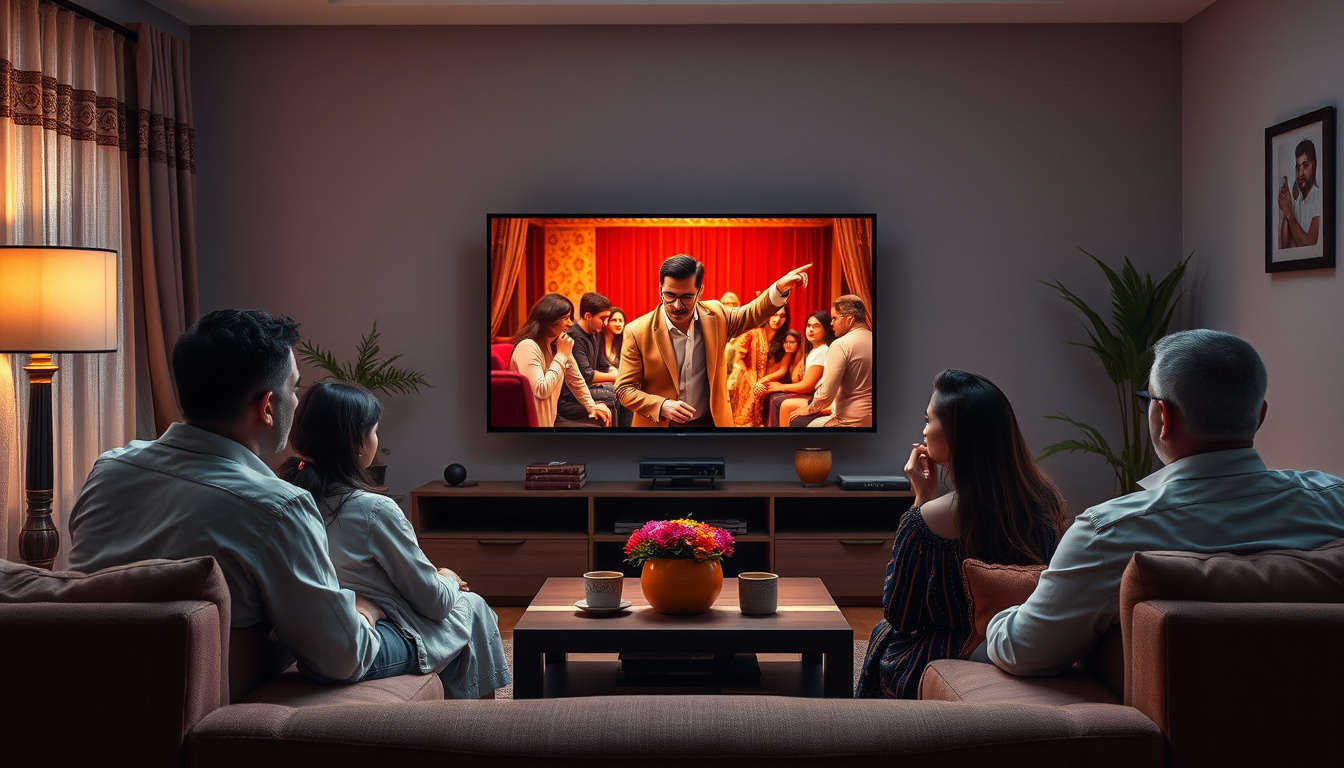Television dramas have long played a critical role in shaping societal norms and expectations, often serving as a mirror reflecting cultural values and aspirations.
In Egypt, where family dynamics are pivotal to social fabric, the portrayal of domestic life on screen has been increasingly criticized for its glaring disconnect from the reality experienced by everyday citizens.
On November 18, President Abdel Fattah Al-Sisi voiced his concerns over these unrealistic portrayals during a discussion at the Police Academy, pointing out the significant impact they have on family life and the rising divorce rates in the country.
With current divorce rates hovering around 25% among young couples aged 20 to 30, it is essential to explore how Egyptian TV dramas are not just entertainment, but potent influencers of expectations and relationships in modern Egyptian society.

Key Takeaways
- Egyptian TV dramas often portray unrealistic family dynamics and affluent lifestyles.
- These distortions contribute to rising divorce rates by creating dissatisfaction with real-life circumstances.
- Cultural reform in artistic representation is essential for addressing the underlying societal issues related to family life.
The Impact of TV Dramas on Societal Expectations
TV dramas undeniably hold a mirror to society, but when that reflection presents an unrealistic portrayal of life, it can have profound consequences on societal expectations.
On November 18, Egyptian President Abdel Fattah Al-Sisi addressed this issue during an engaging discussion at the Police Academy, where he highlighted the detrimental effects of excessive glamorization in television shows.
Al-Sisi argued that the opulent lifestyles showcased on-screen are not reflective of the day-to-day realities faced by most Egyptians.
In fact, he pointed out that around two-thirds of the population cannot afford the luxurious living depicted in these dramas, leading to discontent and marital strife.
This disconnect was brought to light when the President noted that the soaring divorce rates in Egypt, particularly among those aged 20 to 30—currently at a staggering 25%—can be attributed, in part, to the unrealistic comparisons viewers make between their modest homes and the lavish environments portrayed on television.
Moreover, Al-Sisi stressed the importance of moving towards a more accurate representation of Egyptian life to cultivate a ‘healthy Egyptian personality.’ By focusing on genuine stories that resonate with the struggles and aspirations of the majority, creators can encourage a better understanding of relational dynamics, promote realistic expectations, and, ultimately, inspire societal reform.
For the entertainment industry to contribute positively to culture, it must shift away from the glorification of unattainable standards and instead illuminate the rich tapestry of everyday Egyptian life.
In doing so, TV dramas could play a crucial role in shaping a more relatable and fulfilling vision of family and community.
Addressing Divorce Rates Through Cultural Reform
To combat the rising divorce rates, which currently hover around 25% for young couples, it is essential for filmmakers and television producers to recalibrate their narratives.
Reflecting on the President’s insights, there is a clear need for stories that highlight not only the challenges of marital relationships but also the beauty of everyday life in Egypt.
By depicting relatable characters facing real-world issues such as financial struggles, communication barriers, and varying family dynamics, creators can foster a greater sense of empathy and understanding within the audience.
This shift in storytelling can empower individuals by normalizing conversations around marriage difficulties, thereby reducing the stigma associated with seeking help or counseling.
Furthermore, as media shapes public perception, a focus on more authentic representations of love and partnership can help shift societal attitudes toward divorce, promoting a message of resilience and hope.

